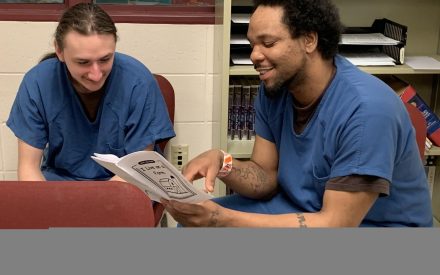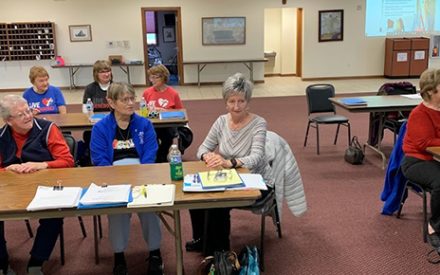To afford the average two-bedroom apartment in Wisconsin, a renter needs to earn a minimum of $17.27 per hour. The average Wisconsin renter earns only $14.32 per hour. Close to 90% of extremely low-income Wisconsin residents (with incomes of 0 to 30% of the area median income) are housing cost-burdened—meaning they pay more than 30% of their income for rent. Struggling to pay rent translates into individuals and families having a hard time meeting their other financial obligations—e.g., utilities, medical expenses, and food—and can put a strain on public support systems.
The economic impacts of the COVID-19 pandemic have increased the number of Wisconsin residents who are seeking assistance from community service providers. As these people work to stay in their rental properties or to secure new rental homes, social service providers need the information and skills to help their clients keep roofs over their heads.
In response, Extension provides education for both renters and community service providers who support them, which leads to better tenant/landlord relationships and can help people attain and maintain safe and affordable housing. Through Extension’s Rent Smart curriculum, participants learn to evaluate how much a rental unit will cost and determine whether the renter can afford it. Participants learn how to check out the rental property and landlord, the application process, determining who’s responsible for maintenance, repairs, and care, communication strategies, and rental agreements. Through this information, Rent Smart strengthened renters’ ability to achieve financial stability. Further, the curriculum helped community service providers to reduce their clients’ reliance on public benefits and supports.
Extension offered online train-the-trainer events for community service providers so they can use Rent Smart with their clients. In 2020, Extension had 208 participants in train-the-trainer events; these participants represented more than 100 nonprofit and local government organizations/agencies from 12 states. Evaluations of our Rent Smart courses indicate that renters significantly increased their ability to communicate with their landlords, manage their monthly expenses, and to take care of their living space. These skills will help them stay in their homes and to receive their full security deposits when they do decide to move. Our 2020 evaluation showed that 89% of participants felt that they have tools and ways to manage their monthly expenses (compared to 50% before the course).
Evaluations of our train-the trainer courses indicate that the course prepares community service providers to help vulnerable populations in overcoming housing challenges such as finding safe and affordable housing, keeping that housing once they move in, and achieving the financial goals that they set for themselves and their families. For example, 92% of community service providers who participated said they felt able to help vulnerable clientele overcome housing challenges after taking the course (compared to 47% before the course).
In 2020, the Wisconsin Rent Smart program received the national Dean Don Felker Award for Financial Management from the National Extension Association for Family and Consumer Sciences.
Learn more at finances.extension.wisc.edu/programs/rent-smart.
Download Article

 Increasing Literacy in Justice-Involved Families
Increasing Literacy in Justice-Involved Families Supporting Adults Who Experience Isolation
Supporting Adults Who Experience Isolation Supporting Children, Parents and Caregivers During Family Transitions
Supporting Children, Parents and Caregivers During Family Transitions Boosting Financial Skills for Social Workers
Boosting Financial Skills for Social Workers


